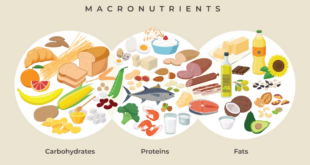Introduction
In recent years, plant-based diets—such as veganism and vegetarianism—have garnered widespread attention due to their potential health benefits. These dietary patterns prioritize foods like fruits, vegetables, legumes, nuts, seeds, and whole grains while minimizing or completely excluding animal products. Research increasingly supports the notion that such diets can significantly improve health, reduce the risk of chronic diseases, and contribute to long-term wellness. This article will explore how going vegan or vegetarian can boost your health, focusing on the various benefits it offers and the nutritional considerations to keep in mind.
Health Benefits of Plant-Based Diets
Reduced Risk of Chronic Diseases
One of the primary reasons individuals switch to vegan or vegetarian diets is the lower risk of chronic diseases. Numerous studies have shown that plant-based diets are linked to a reduced incidence of heart disease, stroke, type 2 diabetes, and certain cancers. This is largely due to the diet’s lower levels of saturated fats and cholesterol, which are often found in animal products. Additionally, plant-based diets are high in antioxidants, vitamins, and phytonutrients that contribute to better overall health.
For example, a study published in the Journal of the American Heart Association found that vegetarians had a significantly lower risk of heart disease compared to those who consumed animal products regularly. Similarly, research has shown that plant-based diets can lower blood pressure, reduce cholesterol levels, and improve vascular health, which in turn reduces the likelihood of developing cardiovascular diseases.
Weight Management
Plant-based diets are often associated with maintaining a healthy body weight. One of the reasons for this is the high fiber content found in fruits, vegetables, and whole grains. Fiber promotes feelings of fullness, which helps to control calorie intake and prevent overeating. Additionally, plant-based foods are typically lower in calories and fat than their animal-based counterparts, making it easier to maintain a healthy weight.
A study in The American Journal of Clinical Nutrition found that individuals following plant-based diets tend to have a lower body mass index (BMI) than those who eat meat. Furthermore, plant-based diets have been shown to aid in weight loss and help prevent obesity, which is a major risk factor for many chronic diseases, including heart disease and diabetes.
Improved Heart Health
Heart disease remains one of the leading causes of death worldwide. The good news is that adopting a vegan or vegetarian diet can have a profound impact on heart health. By focusing on plant-based foods, individuals can lower their intake of saturated fats, cholesterol, and trans fats—all of which are known to contribute to heart disease. At the same time, plant-based diets are rich in heart-healthy nutrients such as fiber, potassium, and healthy fats.
For instance, research has shown that vegan and vegetarian diets can help lower blood pressure and improve cholesterol levels. The high intake of fruits, vegetables, and whole grains helps reduce inflammation and oxidative stress, which are major contributors to heart disease. A study published in The Journal of Nutrition also found that people who follow plant-based diets have a significantly lower risk of developing cardiovascular diseases compared to those who eat a typical Western diet high in animal products.
Blood Sugar Regulation
Plant-based diets have been shown to improve insulin sensitivity and help regulate blood sugar levels, which can reduce the risk of developing type 2 diabetes. Many plant-based foods, such as leafy greens, legumes, and whole grains, have a low glycemic index, meaning they don’t cause rapid spikes in blood sugar levels. This makes them ideal for people looking to manage their blood sugar and prevent or manage diabetes.
Furthermore, research indicates that adopting a plant-based diet can improve insulin sensitivity, making it easier for the body to regulate blood sugar levels. A study in Diabetes Care found that individuals following a vegetarian or vegan diet had better blood sugar control compared to those following a conventional diet. By increasing the intake of fiber and reducing the consumption of processed sugars, plant-based diets help maintain stable blood sugar levels throughout the day.
Improved Digestive Health
Fiber is an essential component of a healthy digestive system, and plant-based diets are rich in this important nutrient. Fiber helps regulate bowel movements, prevent constipation, and promote the growth of beneficial gut bacteria. It also plays a key role in preventing gastrointestinal issues such as irritable bowel syndrome (IBS) and diverticulosis.
Additionally, plant-based diets are associated with a lower risk of colorectal cancer. Studies suggest that the high intake of fiber, antioxidants, and phytochemicals in plant-based diets helps protect the colon and promote a healthy gut microbiome, which is crucial for overall digestive health.
Nutritional Considerations for Vegan and Vegetarian Diets
While vegan and vegetarian diets offer numerous health benefits, it is important to ensure that these diets are well-balanced to avoid nutrient deficiencies. Some essential nutrients that may require special attention in plant-based diets include:
Vitamin B12: Since vitamin B12 is primarily found in animal products, those following a vegan or vegetarian diet may need to consume fortified foods or take supplements to meet their B12 requirements.
Iron: While plant-based foods like beans, lentils, and spinach contain iron, the body absorbs non-heme iron (the type found in plant foods) less efficiently than heme iron found in animal products. Pairing iron-rich foods with vitamin C-rich foods can enhance absorption.
Calcium: Vegans and vegetarians should ensure they consume adequate sources of calcium, such as fortified plant milks, tofu, and leafy greens, to maintain strong bones.
Omega-3 Fatty Acids: Omega-3s are essential for heart and brain health. Plant-based sources of omega-3s include flaxseeds, chia seeds, walnuts, and algae-based supplements.

Conclusion
Adopting a vegan or vegetarian diet offers a range of health benefits, from reducing the risk of chronic diseases and aiding in weight management to promoting better heart health and blood sugar regulation. These diets are nutrient-dense and provide essential vitamins and minerals that support overall wellness. However, careful planning is important to ensure adequate intake of all nutrients, especially for individuals who follow a strictly plant-based lifestyle. With the right balance of plant-based foods, individuals can enjoy a healthier, more sustainable way of eating.
For more insights into vegan and vegetarian diets, visit 365Tastes.
 Tastes | Live healthy every day
Tastes | Live healthy every day

